
This site contains affiliate links, meaning that we earn a small commission for purchases made through our site. We only recommend products we personally use, love, or have thoroughly vetted.
Rainbow Babies
Having a child after pregnancy loss, stillbirth, or neonatal death can be both exciting and terrifying. A child born after these traumatic events is usually called a rainbow baby. But while this rainbow baby definition is simple, the actual meaning of having a rainbow baby is much more complex.
After suffering from recurrent miscarriage (4 losses before my living son), I was terrified of having a rainbow baby.
In this article, I’m going to do what I do best: get real and honest about what it really means to have a rainbow baby, and address all of the concerns that come with it.
What’s a Rainbow Baby FAQ
Before we can really dig into what a rainbow baby means for new parents, it’s important to understand the meaning behind the term and the various questions around it.
A rainbow baby, in fertility terms, refers to a baby born after miscarriage, stillbirth, or infant loss. The term can also be fitting for a child born after any fertility or parenting-related heartbreak or trauma, such as the loss of a living child, infertility, or failed adoption.
Many parents who have endured traumatic events (miscarriage, stillbirth, infant loss) consider a living child to be rainbow after a difficult storm. In this way, many people celebrate rainbow babies because of the hope they symbolize.
Just as a rainbow baby is defined as baby born after loss, a sunshine baby is born before loss.
To many parents, rainbow babies are very special because they are the “miracle” that happens after struggling to bring a living child into the world.
The term “rainbow baby” is often one of hope, but for some parents, having a rainbow baby can also incite fear and anxiety.
Any baby born after the parents experienced loss can be considered a rainbow baby. This can include babies born after chemical pregnancy, blighted ovum, missed miscarriage, ectopic pregnancy, molar pregnancy, termination for medical reasons (TFMR), stillbirth, and more.
National Rainbow Baby Day takes place on August 22 of each year.
When families call their new little one a double rainbow baby, this usually means they’ve experienced two pregnancy or infant losses. This could mean the soon-to-be mom lost a set of twins or more than one pregnancy loss.
An angel baby is a baby who is no longer living, either because they did not survive pregnancy, or because they were stillborn or died during infancy. A rainbow baby refers to the baby born after the pregnancy loss, stillbirth, or infant loss.
A miracle baby typically refers to a baby who beats the odds to be born living–potentially because the parents have overcome infertility, previous loss, or a high-risk pregnancy. A miracle baby may also be a rainbow baby, but they are not necessarily the same. A rainbow baby typically refers specifically to a baby born after pregnancy loss, stillbirth, or infant loss, though many would argue for a more inclusive meaning of the term to support parents who have babies after different types of loss and fertility trauma.
The term rainbow mom refers to a mom who has experienced baby loss previously and now has a living baby. Her previous losses could’ve included pregnancy loss, stillbirth, or infant loss. Some people would also include fertility struggles and embryo loss as reasons someone might be called a rainbow mom.
A golden baby refers to a baby born after a rainbow baby without the parent experiencing new or subsequent baby loss between the two living children. The phrase refers to the “pot of gold” at the end of a rainbow.
Whether a baby born after abortion is a rainbow baby is a complicated and nuanced question, and the answer likely depends on the circumstances of the parent. For instance, many parents experience devastating terminations of wanted pregnancies for medical reasons (called TFMR), and living children who follow these losses can definitely be considered rainbow babies. Additionally, the medical term for miscarriage is abortion, so in this way, all rainbow babies are born after abortion.
What is a Rainbow Baby?
The phrase “rainbow baby” is all about symbolism.
It derives from the notion of an actual rainbow–a beautiful construction of nature that appears after the storm.
Add in the folklore about the pot of gold at the end of a rainbow, a rainbow baby becomes an invaluable gift to a family after the storm they faced in their lives.
A Symbol of Hope After a Storm
There’s also the Biblical implications of rainbows.
Specifically, the first time a rainbow appears in the Christian Bible is after the great flood in the well-known story of Noah’s Ark.
The rainbow symbolizes God’s promise never to cause such a storm again.
I’ve seen stunning rainbow baby photos and photo shoots shared in miscarriage groups to provide hope to parents who have experienced loss.
And for so many parents, the meaning of a rainbow baby really is hope.
It represents the idea that there’s hope for joy after grief, a living child after loss, a rainbow after the storm.
It allows them to imagine the children they’ve lost, out there somewhere, watching over their rainbow baby, protecting them, loving them.
The notion of a rainbow baby intrinsically connects a baby born healthily to those who have been lost before.
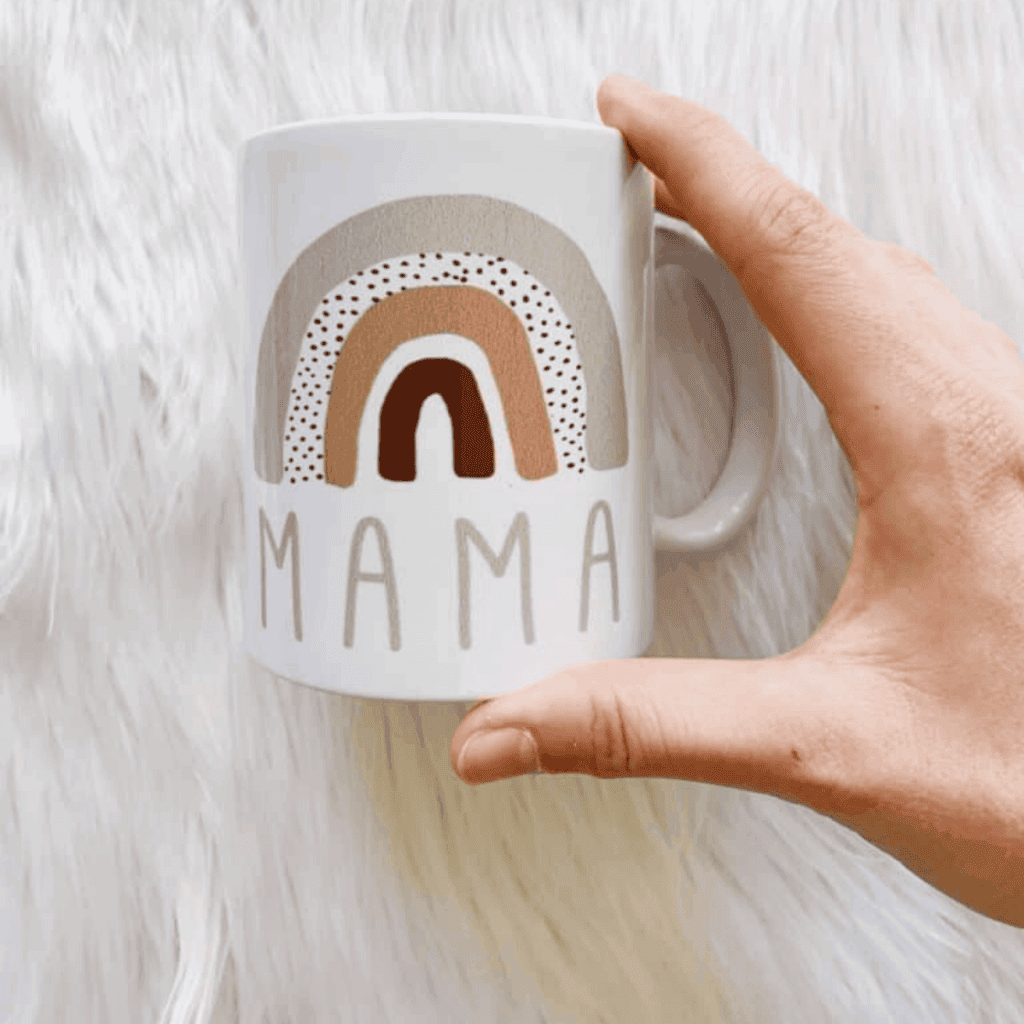
Is Rainbow Baby the Best Term for Rainbow Baby Births?
Even while I recognize and use the term, I do have a complicated relationship with the phrase “rainbow baby.”
In a way, it brought such comfort in the connection I imagine between Jack and his lost siblings.
At the same time, I wonder if it’s fair to Jack that I expect him to be connected to his lost siblings at all.
I continue to use the phrase “rainbow baby,” in part because part of me is warmed by it, and in part for simplicity’s sake.
But another part of me is very much bothered by the idea.
What Does Rainbow Baby Mean From The Child’s Perspective?
When I finally announced my pregnancy with Jack at 24 weeks, I posted a photo of a onesie on social media. The letters are rainbow colored, with little angel wings next to the text, “Hand picked for Earth by my siblings in Heaven.”
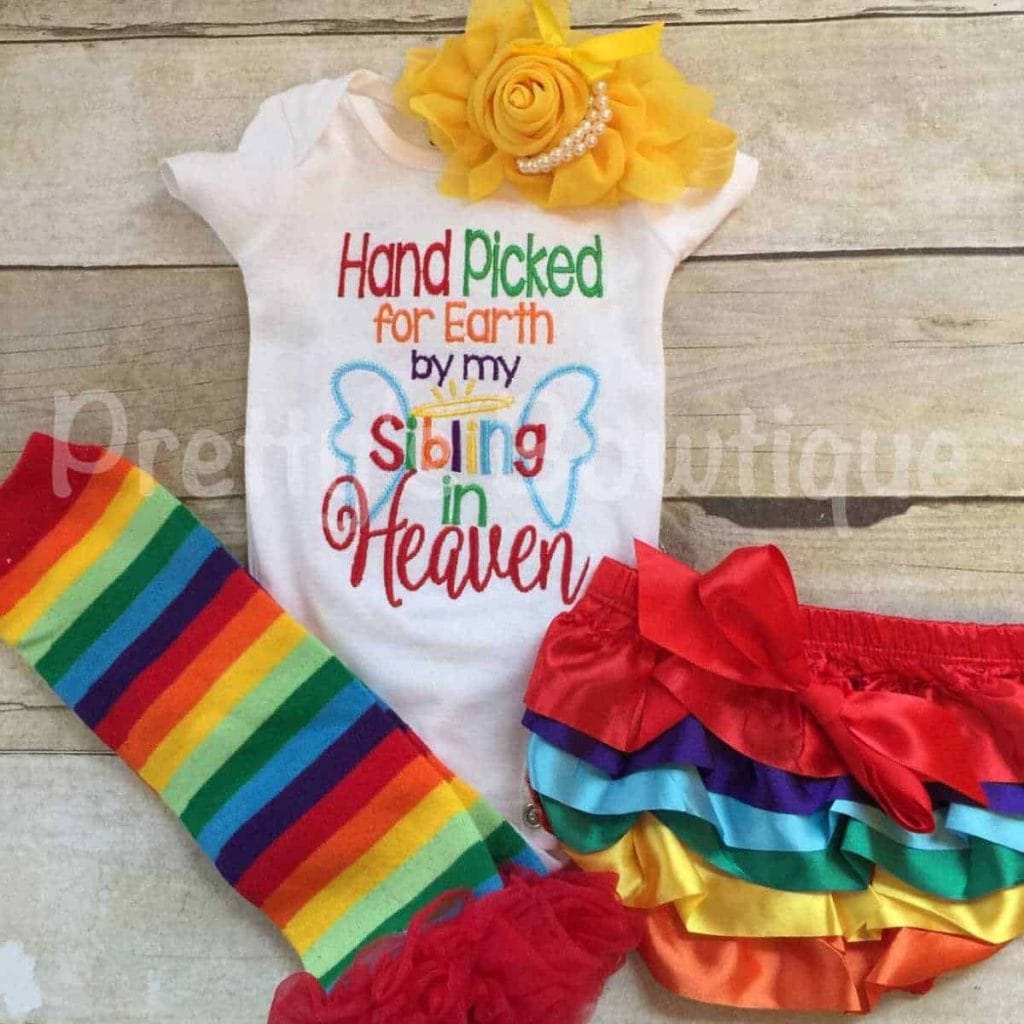
I stared at this onesie for hours, feeling so grateful for Jack and imagining his 4 siblings, lost due to miscarriage.
I envisioned them out in the universe somewhere, helping to craft the child I would finally give birth to.
But I had mixed emotions about what the meaning of rainbow baby symbolized for my child.
I’m conflicted about the phrase. Part of me loves it.
Jack is my beauty after such a long, awful storm. I was never sure he’d get to shine, so he was the perfect happy surprise, like a rainbow.
I think of him every time I see one.
But I also worry that the term will place expectations upon him that are too much to live up to. I never want him to have to live up to anything.
He is himself, and that will always be enough.
Does the Phrase “Rainbow Baby” Put Pressure on the Child?
I started a site called Undefining Motherhood. Clearly, defining who someone is supposed to be–or what terms they are supposed to use–isn’t my thing.
I fear that defining a child as “joy after grief” could place a lot of pressure on that child. I don’t want that for any child, and I certainly don’t want it for Jack.
In other words, what if Jack doesn’t understand that he brings joy simply through his existence?
What if he feels he’s expected to do something to live up to an expectation?
I hope Jack never thinks he has to live up to some idea of “the one who makes everything beautiful and okay again” because we lost his 4 older siblings. Because he is a rainbow baby.
I want him to know he is always enough. He was born enough. He does not have to compensate for the lives we never got to experience.
What Is a Rainbow Baby if Storms Come and Go?
I also worry about how the inherent idea and definition of a rainbow baby because of its symbolic appearnce of after the storm.
Is there beauty after the storm? YES! But there isn’t always a rainbow.
What, then, by calling children rainbow babies, do we do to parents going through infertility, grief, and loss who never experience that rainbow? How does this phrase impact them?
And even when there is a rainbow after a storm, it fades, and more storms come.
We’re all aware of this, but what I hear from parents about anticipating their rainbow babies, makes me worry they’re forgetting about this fact.
Not to be cliche with our topic, but–well–sometimes you can’t help it. I often hear loss moms talk about their future rainbow babies as if the experience truly will be sunshine and rainbows.
And this sets a dangerous precedent.
Even babies who are so loved and wanted bring hardship, tears, stress, anxiety, sleepless nights, financial complications, medical issues, and the host of other struggles that come with having a child.
It’s fair, sweet, and wonderful for parents to see beautiful, symbolic meaning in their rainbow babies, but I also hope they’re prepared for the reality of parenthood.
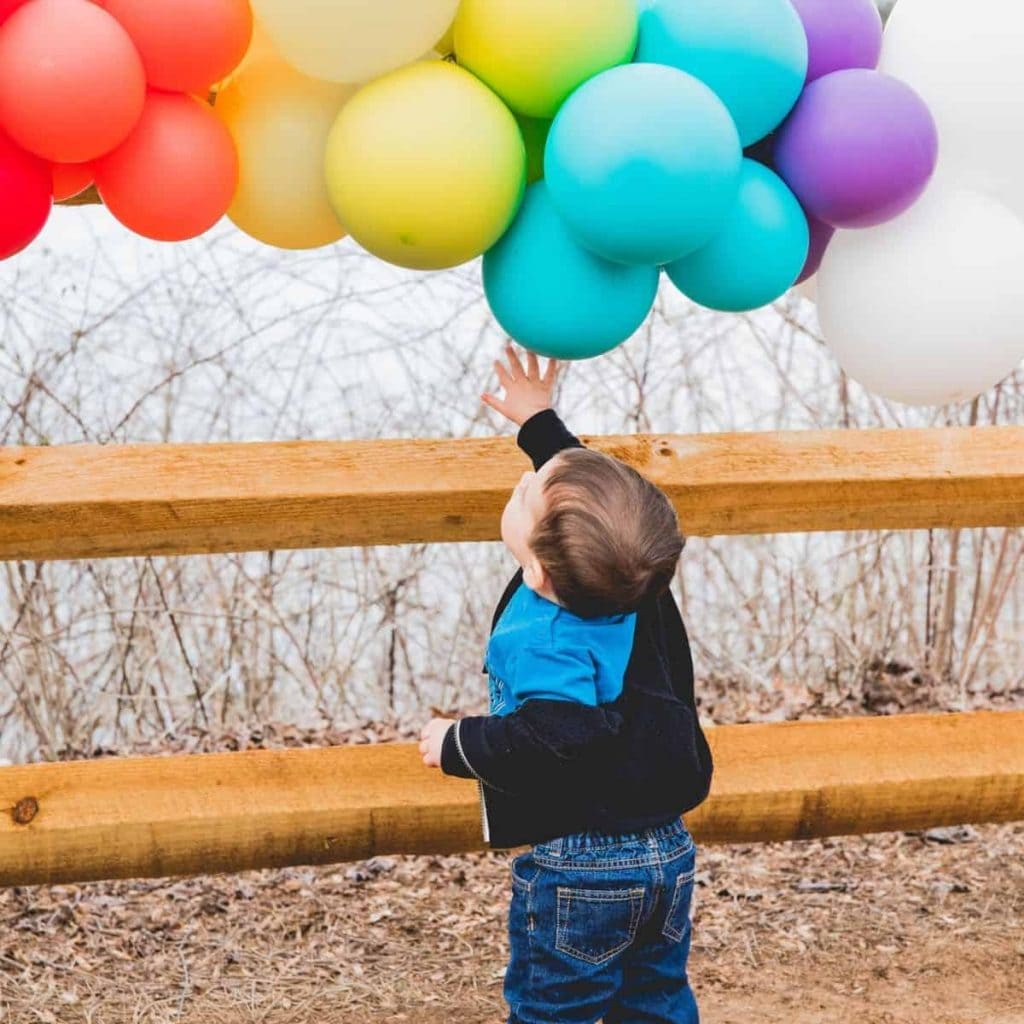
Rainbow Babies Do Not Mean The Storms Are All Over
Even with all the beauty that comes with a rainbow baby, anxious as I am, I always fear a storm.
The reality, no matter how much I don’t like to think about it, is that something could happen to my rainbow baby. And dear God, what if it does? Can a storm happen to a rainbow?
Atmospherically, I don’t know, but in life, absolutely.
And that’s an issue for me.
This anxiety also takes me back to the rainbow in the story of Noah’s Ark.
Noah received a promise that mankind would never endure such a storm again.
But I have not received this promise with my “rainbow.” In my family, storms will continue to come; this is a fact of life.
I think the phrase “rainbow baby” is sweet, in theory, but it also makes me nervous.
I can’t fully attach myself to any idea that doesn’t acknowledge the storms that will come later.
What To Expect When Pregnant With a Rainbow Baby
My pregnancy with Jack exemplifies the mixed emotions of rainbow pregnancies.
What I loved most about the rainbow onesie during my pregnancy was the way in which it made me feel warm and protected.
If I believed that the children I’d never gotten to meet were out there somewhere, helping to build Jack into the perfect child he is, then how could I not feel comfort?
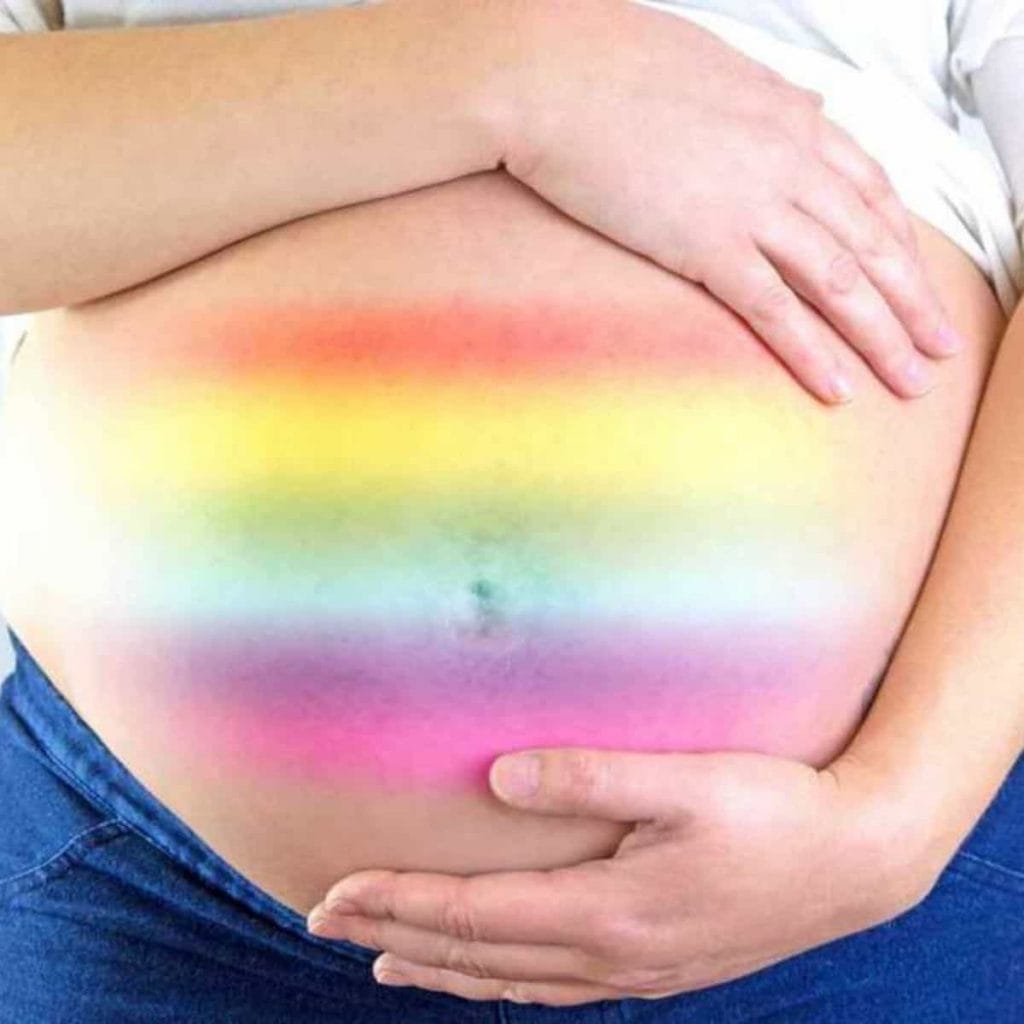
And yet, my experience taught me that things could go wrong at any moment. Just because Jack was healthy one moment didn’t mean he’d be healthy the next.
And so I worried. I worried throughout pregnancy, when he was full term, when he was born, and now that he’s a preschooler.
I will always worry. And while all parents worry, and I’m especially prone to it, I do think it’s worse because of the losses I experienced before Jack.
Maybe we need a rainbow parents anxiety support group.
Rainbow Babies are Exciting, but Also Terrifying
What complicated the matter further is how much excitement people expected me to feel about my rainbow baby.
People constantly exclaimed, “You must be so excited!”
Sometimes I was, but at other times, I was terrified, and at others, completely numb.
It was tough to navigate that terrain. My mixed feelings, combined with other people’s single-sighted expectations about my emotions, caused constant conflict.
It’s actually from that conflict that I derived my 5 tips for coping pregnancy after miscarriage. I wanted new parents to know that it’s okay to find a rainbow baby pregnancy to be quite a scary experience.
Bringing Home a Rainbow Baby: What I Wish I’d Known
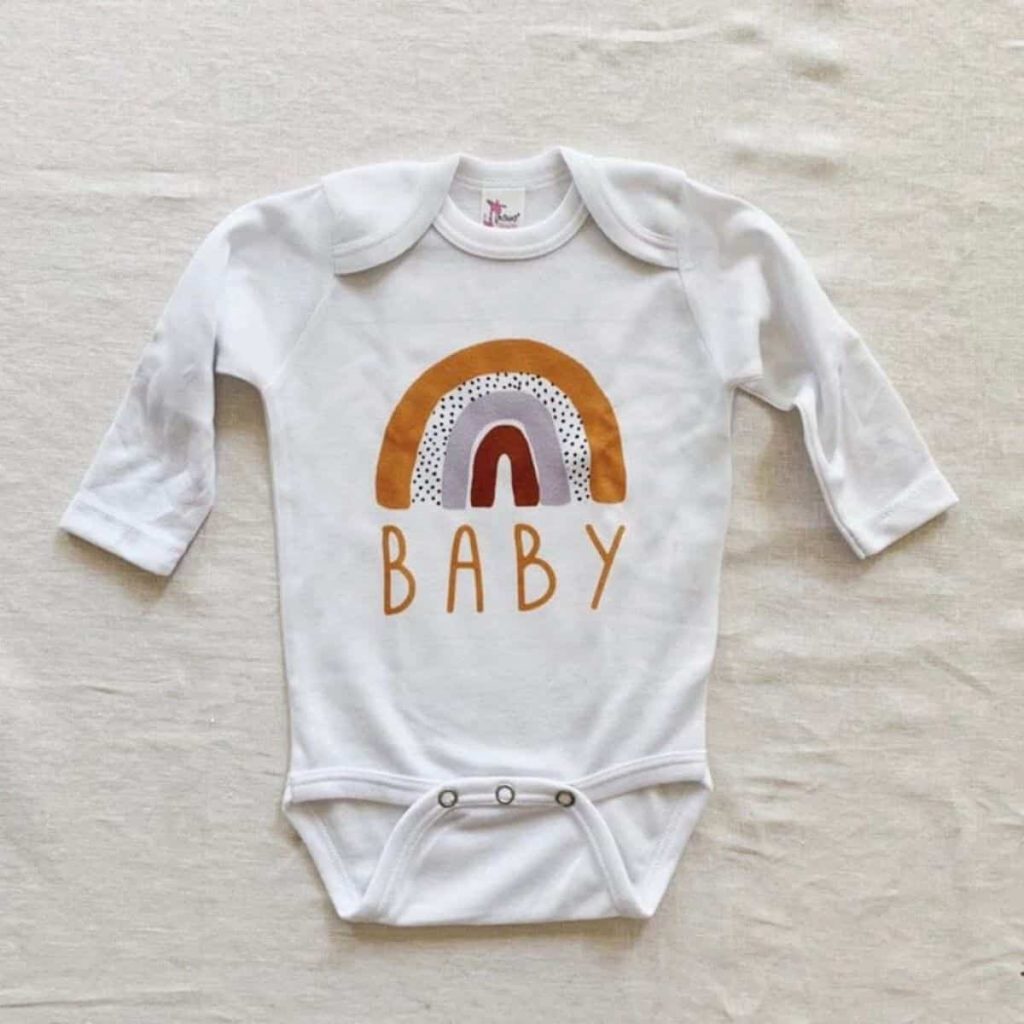
What I wish I’d realized is that these clashing expectations about emotions would continue, and that they would be even stronger once Jack was born.
After Jack was born, the expectations shifted. Not only did everyone else think I should be excited, but I thought so, too.
After all, I FINALLY had my rainbow baby!
And yet, I was terrified.
I broke down in sobs daily.
I hyperventilated.
I was dealing with postpartum depression and anxiety, which were absolutely crippling.
I couldn’t take proper care of myself or Jack.
And I struggled so much with feelings of guilt because everyone else expected me to be “so excited” after finally birthing my rainbow baby.
The definition of rainbow baby suggests they should bring even more joy than other births.
But what about the times when they’re ushered into the world, bringing with them postpartum mental health problems, or even typical “baby blues”?
Postpartum Can Be Harder with a Rainbow Baby
As we all know, the postpartum period is freakin’ hard.
Moms regularly report feeling guilty about how much they don’t love the postpartum period. This is especially true for moms of rainbow babies.
Sure, some moms experience the glowing joy they’re expected to feel, and that’s amazing. Good for you, mama! I’m proud, in awe, and honestly, jealous.
But when new moms don’t feel that overwhelming joy, they often feel parenting guilt.
And when you’ve worked so hard for a baby–experiencing infertility and miscarriage–and you finally birth a rainbow baby, you feel especially guilty.
You know how many women are dying for the experience you’re having, but they don’t have it yet.
And in feeling bad for those women, you begin to doubt yourself.
Did I really deserve this gift?
When I experienced crippling postpartum anxiety with Jack, I felt inadequate.
I had struggled for so long trying to have this baby–why couldn’t I be happy with him? What was wrong with me?
I felt unworthy, ungrateful, and a tremendous sense of self-loathing.
Here’s what you really need to know.
Statistically, new moms with a history of trauma (reproductive or not) are more likely to experience postpartum mental health issues like like postpartum depression or anxiety.
PPD and PPA can complicate the “joyful” emotions we are socially (and internally) pressured to feel after the birth of a rainbow baby.
Rainbow Baby Meaning: An Inclusive Opinion
I’m not suggesting we abandon this term, as it truly does so many families a lot of good. But we should be careful with it.
But we should know that a rainbow does not guarantee sunshine.
Further, we need to be open in our understanding of who qualifies as a rainbow baby.
Obviously, a baby born after miscarriage, stillbirth, or infant loss is a rainbow baby. But I think the trauma extends much further.
Can an adopted baby be a rainbow baby? Absolutely.
What about a baby born following infertility? Hell yes! Infertility is a serious storm!
Babies born via surrogate after infertility or loss? Of course! Their parents clearly have gone through the ringer getting there.
There are so many kinds of rainbow babies born to parents who have struggled in so many ways. Inclusivity in this category is a must.
A More Nuanced “Rainbow Baby” Definition
While we keep our definitions open, let’s also remember the conflicting emotions that often come with bringing home a rainbow baby.
Let’s work to stop placing those expectations onto parents and their children born or adopted after loss and trauma.
If a parent feels ecstatic about the birth of their baby after previous trauma, awesome! Buy them a rainbow baby gift and celebrate with them! You can find tons of great rainbow baby gifts on Etsy!
But if they feel scared, or anxious, or depressed–that’s okay too. It’s actually normal. Please understand, love them, help them, and comfort them through it.
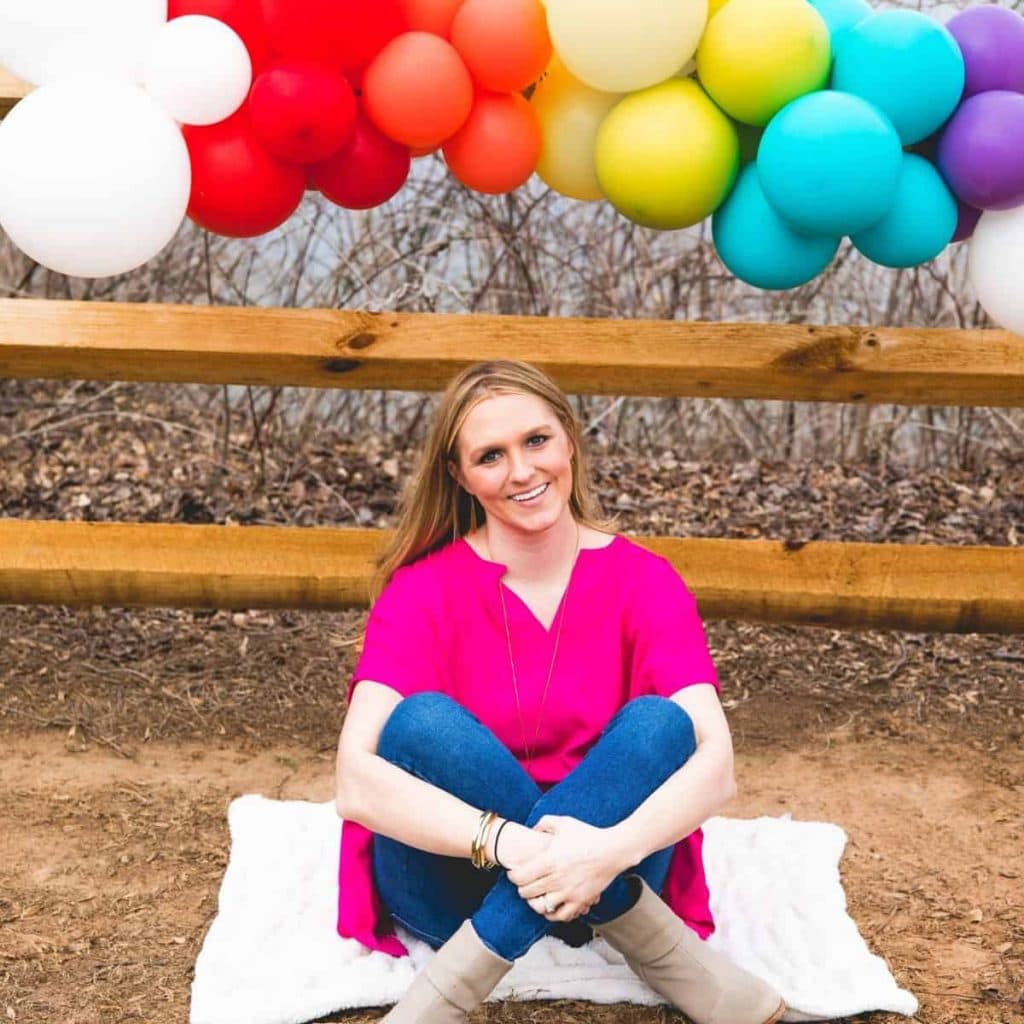
If you have a rainbow baby, what do you think of the phrase? Chat with us in the comments!
Other Articles About Rainbow Babies
- The best rainbow baby gifts
- Hannah’s letter to her dear rainbow baby
- Quotes about rainbow babies
- Rainbow baby shower
- Rainbow baby announcements
- Rainbow baby onesies
- Rainbow baby clothes
- Double rainbow baby
Articles About Pregnancy
- New baby must haves with PRINTABLE baby registry checklist PDF
- Pregnancy anxiety after miscarriage
- Best ways to track ovulation
- Pregnancy planner
Articles About Postpartum
- Postpartum must haves
- Real talk about the postpartum experience
- Dealing with postpartum body image
- How to deal with postpartum anxiety
Articles About Parenting
- Self care for moms
- Why we feel mom guilt and how to overcome it
- Potty training failure
- Baby’s first Christmas ornament













I just found this one-love it! 29 weeks now and feeling pretty good. I think the perceived expectations of others are so hard on this journey-from both sides. I feel like I shouldn’t ever say that something about pregnancy is difficult to my infertility/loss friends bc I know how very lucky I am, so even if they ask I say all is well and change the subject. Everyone else wants me to be both ecstatic and complaining about everything-to be “normal”, but I don’t even know what that is. So I try to say something but not too much. Either way, talking about it always makes me feel uncomfortable.
I much more prefer the idea that I’m a rainbow mom. Like you, I’m not a fan of projecting what came before onto the child. I do like the idea that the ones who didn’t make it are helping to grow the new one <3 I love the rainbow after a storm, but I have mixed feelings about the idea of projecting the image of a rainbow baby on my child. But that's just me!
I love the idea of embracing the rainbow mom, while being careful with the rainbow baby!
Very true insights… my main reaction is, Thank God for rainbow babies! ❤️
I don’t like it for our situation. My 2.5 year old boy twin died in his sleep and the doctors Couldn’t figure it out. He had no prior medical health conditions. What is his twin sister called? I have heard sunrise Baby and he would be sunset. I don’t like that because he wasn’t a baby. He didn’t die as an infant or in utero. He was a child…
And what about a future baby? Of course miscarriages will always be a storm… I just don’t feel like the terms fitting. Kind of like you said it almost feels like it’s the rainbow after the storm. Our life is still a daily nightmare. It’s a living nightmare. Just because the storm is always there though, doesn’t mean that we can’t also have happiness with a new baby. I would also hate like you said to put the pressure on a new baby, or giving the term rainbow to a new baby… It just feels like to me that it diminishes everything that our little boy was. Like we are “moving on”. IDK
I am so, so sorry for your loss. I wish there were better words. What’s your son’s name?
I have not lost a baby and had 4 full term babies, now all adults. I wonder about the term “rainbow baby”. A cousin who was 13 months younger was told at the sudden death of her older sister when she was 18 years old. My cousin, who was 17, was taken aside and told, “you have big shoes to fill.” This cousin said the pressure was a terrible thing in her life. How did she or how does a “rainbow baby” ever be the one who was taken too soon. I don’t know the pain of a loss, but I do know how siblings have pressure on them no matter where they are in the “line up”. The death of a child is the hardest pain a parent will ever feel. The new baby or the surviving child can’t fill that pain nor should they feel this pressure. My heart to all who have had to experience this tragedy..
Hello. I have a beautiful 4 month old rainbow baby that I am so so thankful to have. I had been trying to get pregnant for years and then came to the assumption that it wasn’t a possibility for me, then when I did, I had had a silent miscarriage. Two months afterwards, I found out that I was pregnant again.
Of course I was excited. A second chance, especially after thinking It would be years before I would get my second chance. The excitement quickly faded into anxiety. I was prescribed anxiety medication to help me manage the constant fear of losing another child. She made it. She’s here. But the fear has not left me.
One thing I was shocked about is how the holidays affected me. I bought my heaven baby an ornament and I’ve been imagining what he would’ve been/looked like. But then this guilt hits me. If I hadn’t lost him, I wouldn’t have my little girl now. I mean the loss was right before we were pregnant again. I didn’t expect to feel the guilt of missing a child I never had the pleasure of meeting, and the fear of losing my precious daughter now. I think I’m struggling with Postpartum anxiety. I don’t like her being out of my sight. I have panic attacks if she goes somewhere without me (her dad took her shopping and was only gone for half an hour).
Thank you for this article. I understand that the anxiety for my rainbow daughter may never go away, but I see that I’m not the only one that feels the way I have been.
I am the proud mother of a rainbow baby. I have considered that the term is heavy on numerous levels, but I had never considered the pressure the child may feel. For me, their term rainbow baby was never an identifier for my living child, but more of a tribute to my lost baby. A way to say, “I may not be able to hold you, but I know God created you and I’ll see you one day”
I want to commend all mothers who are loving and brave enough to have that special rainbow baby. I don’t want anyone to be offended, but the term is bothering me because of the term “crossing the rainbow bridge” when you have to put a beloved pet to sleep. The categories are obviously not the same, but the titles are so close. Forgive me if I offended anyone, that wasn’t my intention. I’m a mom, so I know how feelings can get hurt.